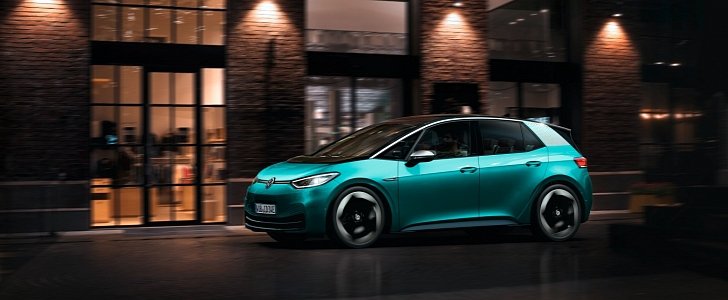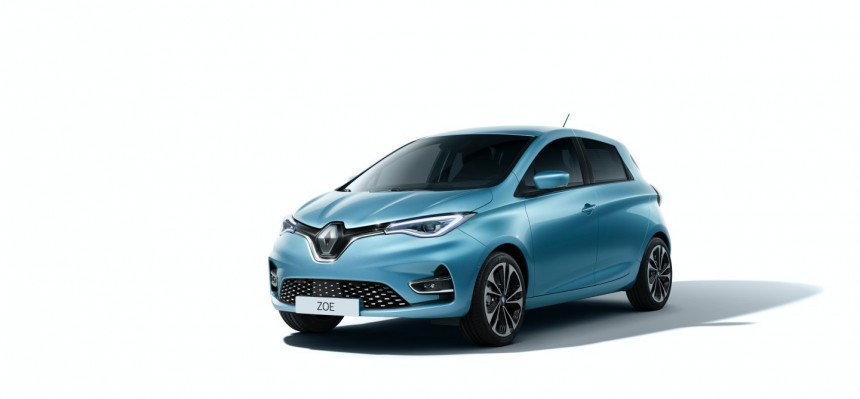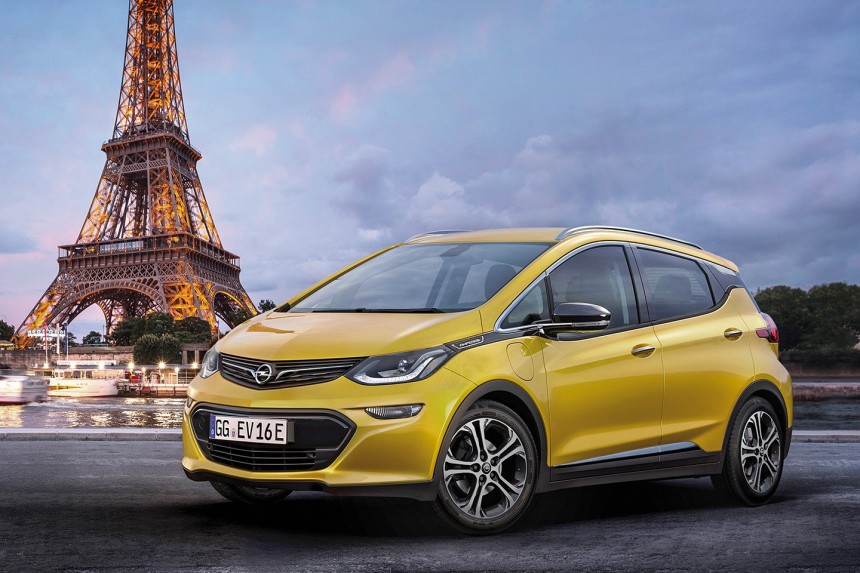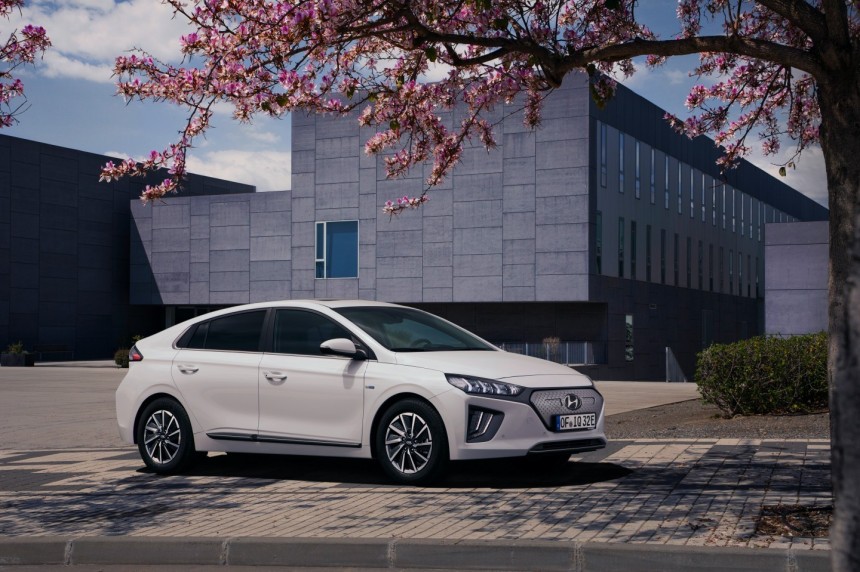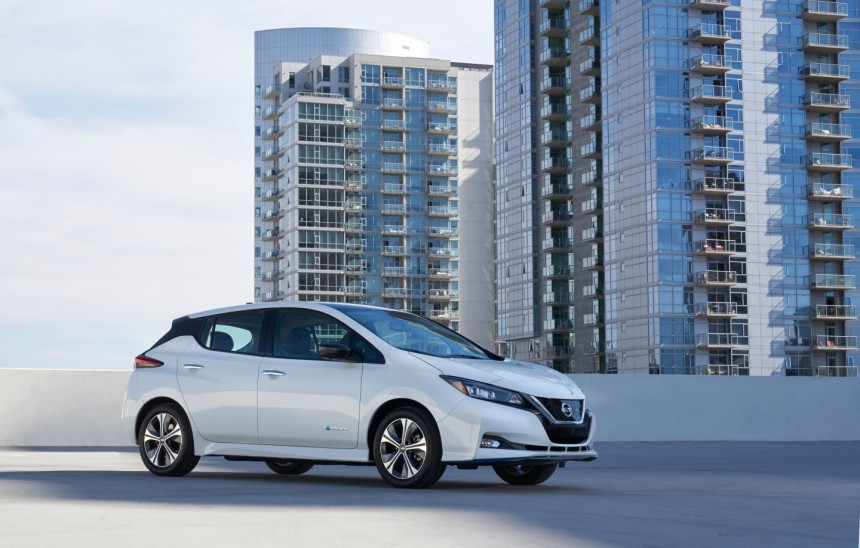Electric vehicles are still more noticeably expensive than an equivalent gasoline or diesel car, and you’d think that some of the cheaper ones out there would be dreadful to own. But you’d be wrong, because there are now some quite affordable EVs that are actually pretty good.
Whereas, say, three or four years ago your choices were limited and if you opted for a cheap EV you really didn’t have a great ownership experience, this is definitely no longer the case. It’s actually quite remarkable how far small EVs have come in terms of performance, range and quality, over the past few years.
One example is the Renault Zoe, available in Europe from around €30,000, which was the subject of a major overhaul in 2019. Its exterior design was improved and made to look more modern and upmarket, but it’s inside where the evolution over the previous version is plainly visible.
The Zoe can now also be ordered with a more powerful 130 horsepower engine, whereas before it was available with 90 or 110 horsepower. With this more powerful motor, it sprints to 100 km/h (62 mph) from naught in 9.5 seconds, has a top speed of 140 km/h and thanks to the new (and larger) 52 kWh battery pack, its WLTP range is 390 km (242 miles).
Peugeot has also stepped in with its own all-electric small city car, the first ever e-208. With a starting price of around €31,000, it’s even more tempting than the Zoe because it’s a big larger and more serious, and even though the Renault was recently overhauled, it’s the Peugeot that looks like the more modern, more upmarket car.
In terms of performance, it has the same 130 horsepower as the Zoe, but it is quite a bit quicker to accelerate off the line, completing the benchmark sprint in 8.1 seconds. Its battery pack is only marginally smaller than the Renault’s, at 50 kWh, and it can travel up to 340 km (211 miles) on one charge. Oh, and if its design is too much for you, then you can get the mechanically identical Opel Corsa-E.
One car that in Europe is nowhere near as popular as it is in the U.S. is the Opel Ampera-E, known Stateside as the Chevrolet Bolt. In the States, it’s really popular and for good reason - it’s a great way to drive around town thanks to excellent performance, range and tech.
Firstly, it has quite a bit of power for its size - 200 horsepower - a sprint time to 100 km/h (62 mph) of around 7 seconds and thanks to a big 60 kWh battery pack (that will grow to 66 kWh for 2020) it has an EPA range of 383 km (238 miles). One factor limiting its popularity on the Old Continent might be the fairly high starting price that starts from around €42,990, whereas in the U.S. it’s available from $37,495.
Hyundai sells two very good EVs, the Ioniq Electric and the Kona EV, but it’s the former that’s cheaper and therefore makes this list. The Ioniq Electric, with a starting price from €35,000 in Europe, has a 38.3 kWh battery pack that can take it up to 311 km (193 miles) on a single charge.
Motivation comes courtesy of a 132 horsepower electric motor that sends the car to 100 km/h (62 mph) in just under 10 seconds; top speed is 165 km/h (102 mph). It’s also worth noting that the Ioniq is actually quite fun to drive, even though this was never its prime focus.
The ubiquitous Nissan Leaf can’t not make this list. It has been around for a couple of years in its current form and there’s a good reason why it’s one of the world’s most popular EVs. In Europe, it can be had from around €37,000 and for that you get a 36 kWh battery pack that’s good for a WLTP-approved range of 270 km.
The Leaf is also quite spacious and practical inside and while it’s not as fun to drive as some other EVs from the same price bracket, it’s not dull. That’s thanks in part to its peppy 148 horsepower electric motor that scurries it to 100 km/h (62 mph) in 7.9 seconds and bestows it with a top speed of 144 km/h (89 mph).
One car that is set to disrupt the affordable EV segment is the upcoming VW ID.3, VW’s first wholehearted foray into electric vehicles. It’s about the size of a Golf, but it has the interior room of a Passat and unlike most cheap EVs, it’s actually rear-wheel drive.
Basic versions will have a 132 horsepower electric motor, an 8-second benchmark sprint time and a top speed of 160 km/h (99 mph). The smallest battery pack available has a 48 kWh capacity and a WLTP range of 330 km. Keep in mind that there will be more powerful and longe range versions and that the cheapest example will cost from around €30,000.
One example is the Renault Zoe, available in Europe from around €30,000, which was the subject of a major overhaul in 2019. Its exterior design was improved and made to look more modern and upmarket, but it’s inside where the evolution over the previous version is plainly visible.
Peugeot has also stepped in with its own all-electric small city car, the first ever e-208. With a starting price of around €31,000, it’s even more tempting than the Zoe because it’s a big larger and more serious, and even though the Renault was recently overhauled, it’s the Peugeot that looks like the more modern, more upmarket car.
In terms of performance, it has the same 130 horsepower as the Zoe, but it is quite a bit quicker to accelerate off the line, completing the benchmark sprint in 8.1 seconds. Its battery pack is only marginally smaller than the Renault’s, at 50 kWh, and it can travel up to 340 km (211 miles) on one charge. Oh, and if its design is too much for you, then you can get the mechanically identical Opel Corsa-E.
Firstly, it has quite a bit of power for its size - 200 horsepower - a sprint time to 100 km/h (62 mph) of around 7 seconds and thanks to a big 60 kWh battery pack (that will grow to 66 kWh for 2020) it has an EPA range of 383 km (238 miles). One factor limiting its popularity on the Old Continent might be the fairly high starting price that starts from around €42,990, whereas in the U.S. it’s available from $37,495.
Hyundai sells two very good EVs, the Ioniq Electric and the Kona EV, but it’s the former that’s cheaper and therefore makes this list. The Ioniq Electric, with a starting price from €35,000 in Europe, has a 38.3 kWh battery pack that can take it up to 311 km (193 miles) on a single charge.
The ubiquitous Nissan Leaf can’t not make this list. It has been around for a couple of years in its current form and there’s a good reason why it’s one of the world’s most popular EVs. In Europe, it can be had from around €37,000 and for that you get a 36 kWh battery pack that’s good for a WLTP-approved range of 270 km.
The Leaf is also quite spacious and practical inside and while it’s not as fun to drive as some other EVs from the same price bracket, it’s not dull. That’s thanks in part to its peppy 148 horsepower electric motor that scurries it to 100 km/h (62 mph) in 7.9 seconds and bestows it with a top speed of 144 km/h (89 mph).
Basic versions will have a 132 horsepower electric motor, an 8-second benchmark sprint time and a top speed of 160 km/h (99 mph). The smallest battery pack available has a 48 kWh capacity and a WLTP range of 330 km. Keep in mind that there will be more powerful and longe range versions and that the cheapest example will cost from around €30,000.
